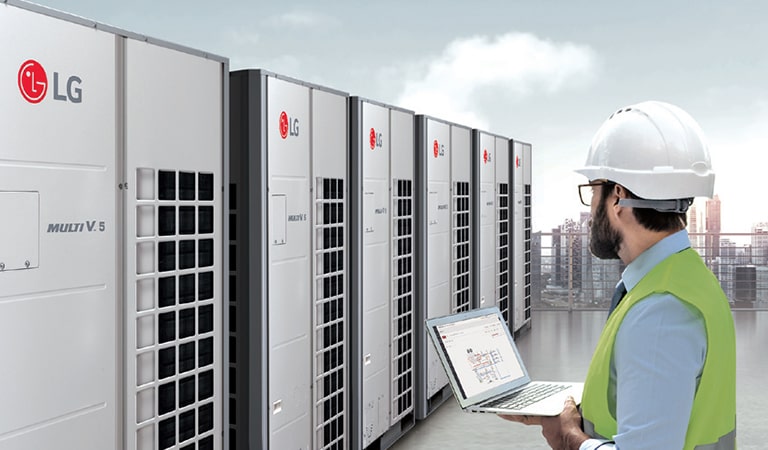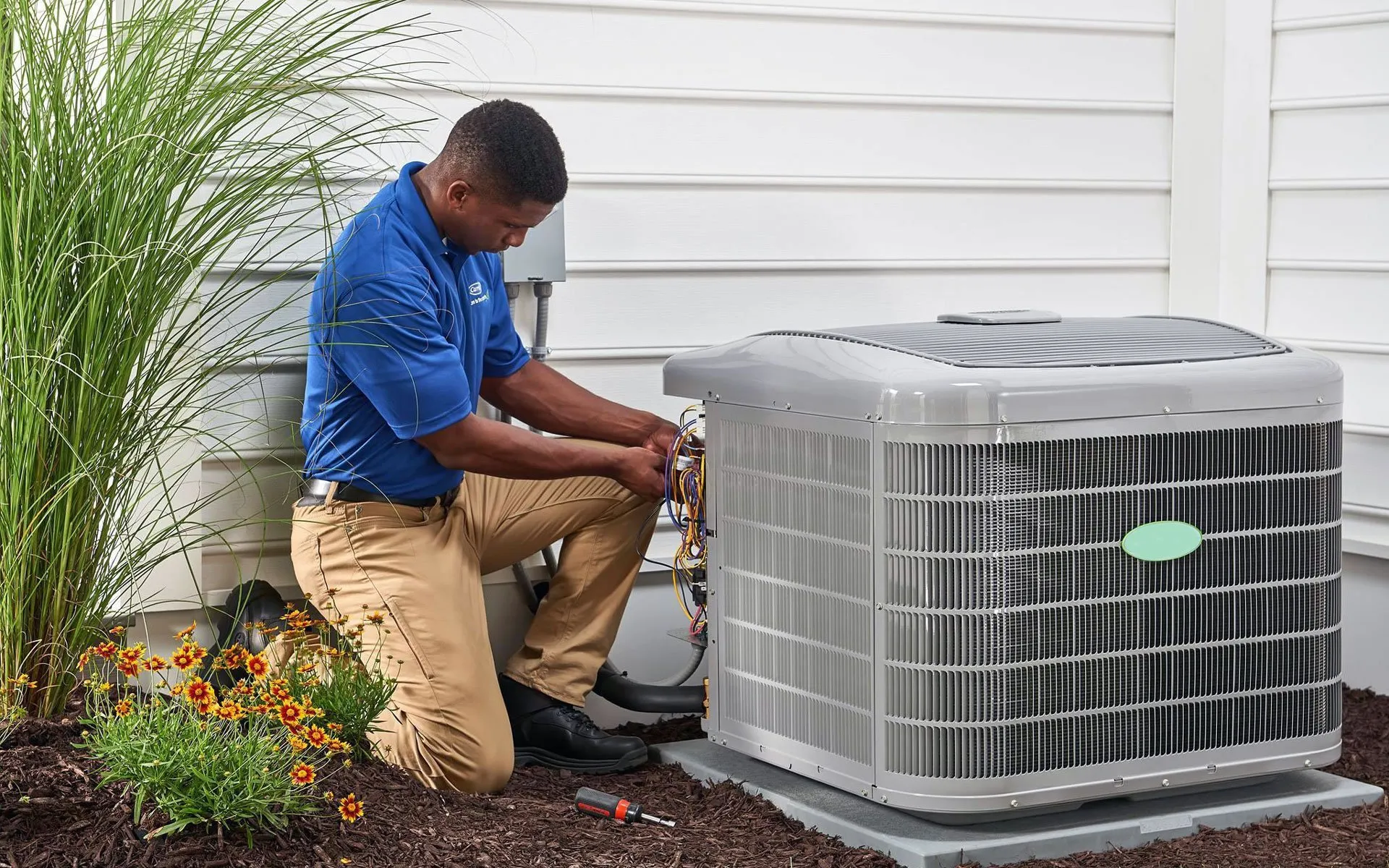Why HVAC Jobs Only job board is beneficial for HVAC professionals
Opening Prospective: The Function of A/c Employees in a Sustainable Job Market
The a/c market is undertaking substantial makeovers as sustainability ends up being a concern. Heating and cooling employees go to the forefront of this adjustment, equipped with the skills to apply reliable systems and environmentally friendly innovations. Their experience not just addresses current demands but likewise positions them as vital gamers in the future of power conservation. As the landscape evolves, understanding their role will certainly expose how they add to a greener economic climate and adjust to brand-new obstacles.
The Growing Significance of Sustainability in a/c
As the worldwide concentrate on environmental problems magnifies, the a/c market is increasingly focusing on sustainability. This shift shows a wider commitment to reducing carbon footprints and preserving energy. Cooling and heating systems, typically recognized for their power intake, are now being revamped to make best use of efficiency and minimize environmental impact. Market stakeholders are incorporating lasting methods, such as utilizing eco-friendly refrigerants and optimizing system designs for lower energy use.
Additionally, governing frameworks are evolving to encourage greener modern technologies, compelling heating and cooling experts to adjust to these changes. Training programs are being developed to outfit employees with the essential skills to carry out sustainable options. This growing focus on sustainability not only interest ecologically conscious customers but likewise settings HVAC employees as principals in the development toward a greener future. Consequently, the need for proficient specialists experienced in sustainable practices in heating and cooling is expected to rise, shaping a much more resilient work market.
Cutting-edge Technologies Transforming the HVAC Industry
Cutting-edge innovations are improving the HVAC sector, driving efficiency and boosting customer convenience while resolving sustainability challenges. The integration of wise thermostats and IoT devices enables real-time surveillance and control of cooling and heating systems, making it possible for customers to maximize their power usage. Furthermore, advancements in variable refrigerant circulation (VRF) systems offer versatile and effective home heating and cooling remedies tailored to certain building requirements.
The usage of sophisticated filtering technologies enhances interior air high quality, dealing with health and wellness worries while advertising energy effectiveness. Automation and anticipating upkeep powered by expert system and device learning improve functional efficiency, decreasing downtime and prolonging devices life expectancy.
Furthermore, the increase of renewable energy resources, such as solar-powered HVAC systems, lines up with international sustainability objectives. Jointly, these ingenious innovations are not just changing operational techniques yet likewise redefining the function and skillset of cooling and heating professionals in a quickly advancing market.
Power Performance: A Trick Focus for A/c Professionals
Energy efficiency has actually arised as a primary problem for HVAC specialists taking into account energy-saving methods and current innovations. These advancements not just boost system performance however additionally considerably decrease the carbon impact linked with heating & cooling. HVAC Jobs Only. As the industry evolves, the commitment to power efficiency will play an important role in forming sustainable heating and cooling remedies
Advancements in Cooling And Heating Technology
While the demand for efficient climate control remains to rise, cooling and heating specialists are significantly turning their interest to technologies that prioritize energy efficiency. Advances in innovation are reshaping the sector, with clever thermostats and variable refrigerant circulation systems getting traction. These innovations boost temperature guideline while reducing power consumption. Additionally, the integration of Net of Things (IoT) tools allows real-time tracking and predictive upkeep, more optimizing system efficiency. Eco-friendly refrigerants are additionally being established to decrease ecological impact. As power effectiveness comes to be a critical emphasis, heating and cooling employees are accepting these technical developments, making certain that climate control remedies are cost-efficient and lasting. Such innovations not only benefit the environment however also enhance the total efficiency of cooling and heating systems.
Energy-Saving Practices Implemented
As the cooling and heating sector progresses, professionals are significantly embracing energy-saving methods that significantly improve effectiveness. Service technicians are now concentrating on innovative analysis devices to evaluate system performance precisely. Routine maintenance schedules have actually ended up being typical, making certain optimal operation and preventing energy waste. Experts are also suggesting high-efficiency equipment, which makes use of sophisticated modern technologies to lower power usage considerably. In enhancement, the integration of wise thermostats permits customized environment control, adjusting to user preferences while minimizing excess energy use. Insulation improvements and air duct sealing are likewise stressed, taking full advantage of the effectiveness of a/c systems. Collectively, these methods not only improve functional performance however likewise add to long-term expense financial savings for consumers, reinforcing the important duty of cooling and heating experts in promoting lasting power solutions.
Impact on Carbon Footprint
The execution of energy-saving practices in the cooling and heating market significantly influences the carbon impact linked with heating and cooling down systems. By prioritizing energy performance, heating and cooling professionals contribute substantially to reducing greenhouse gas exhausts. High-efficiency equipment, such as energy-efficient boilers and a/c unit, reduces power intake while maintaining ideal interior climates. Furthermore, routine maintenance and system upgrades assure peak functional efficiency, better reducing energy usage (HVAC Jobs Only jobs). Advanced modern technologies, including smart thermostats and variable speed drives, enable for exact control over energy consumption, bring about substantial decreases in carbon emissions. Collectively, these techniques not just boost sustainability but likewise placement a/c workers as crucial gamers in the shift towards a greener economic situation, ultimately site fostering an extra lasting future for the sector and the atmosphere
The Function of Cooling And Heating Workers in Minimizing Carbon Footprint
Heating and cooling workers play a vital duty in decreasing the carbon footprint through power effectiveness improvements and the combination of renewable resource resources. By enhancing heating, air flow, and air conditioning systems, they add to lower power intake and greenhouse gas exhausts. Their know-how not just improves building efficiency however likewise sustains broader sustainability goals.
Energy Efficiency Improvements
While many industries are functioning to enhance sustainability, HVAC workers play an essential function in applying energy effectiveness enhancements that considerably decrease carbon footprints. These professionals are vital in optimizing systems to minimize energy usage and enhance efficiency. Via regular upkeep, they assure that heating and cooling systems run at peak efficiency, reducing unneeded energy use. Additionally, they are competent in identifying obsolete equipment and advising energy-efficient alternatives, such as high-efficiency central heating boilers and wise thermostats. Their expertise also prolongs to educating customers regarding correct system usage and seasonal modifications, additionally advertising sustainable practices. By utilizing innovative technologies and ideal methods, a/c employees contribute considerably to lowering greenhouse gas emissions, making them critical players in the shift towards a greener future.
Renewable Resource Assimilation
As renewable resource resources acquire traction in the mission for sustainability, heating and cooling workers are significantly tasked with incorporating these technologies into existing systems. This combination entails the fostering of photovoltaic panels, geothermal systems, and energy-efficient heat pumps, which substantially lower dependence on nonrenewable fuel sources. By retrofitting buildings with these sustainable remedies, HVAC specialists play a vital duty in decreasing carbon footprints and enhancing power efficiency. Their knowledge is essential in making certain that these systems operate sympathetically within standard HVAC structures. In addition, a/c employees contribute in informing clients regarding the advantages of eco-friendly power, fostering a shift toward much more lasting methods. HVAC Jobs Only job board. Inevitably, their contributions are necessary beforehand the sector's dedication to ecological stewardship browse around this site and energy preservation
Training and Abilities Advancement for Sustainable Practices
To grow in a rapidly progressing task market, workers need to prioritize training and skills advancement concentrated on lasting practices. The cooling and heating sector is increasingly incorporating ecologically pleasant technologies, demanding that professionals acquire expertises in eco-friendly refrigerants and energy-efficient systems. Recurring education programs are important for employees to remain upgraded on emerging fads, such as smart structure technologies and progressed environment control options.
Hands-on training and certification in lasting methods not just improve specific proficiency but additionally add to total industry requirements. Collaboration with instructional institutions and sector organizations can cultivate a workforce that is experienced in lasting a/c services. Additionally, welcoming electronic tools and software program for energy administration can additionally equip employees to execute efficient systems. As the need for lasting practices expands, HVAC professionals geared up with specialized training will be much better positioned to meet customer expectations and regulatory needs, inevitably reinforcing their value in the work market.
Job Opportunities in the Evolving Cooling And Heating Landscape
The progressing cooling and heating landscape provides a wealth of profession opportunities for experts geared up with innovative skills and sustainable methods. As the demand for energy-efficient systems climbs, there is a raising requirement for professionals who are educated in environment-friendly modern technologies and eco friendly services. Settings in style, setup, and upkeep of innovative HVAC systems are coming to be more prevalent, dig this as business look for to improve performance and decrease carbon footprints.

The Future of A/c: Trends and Forecasts for Sustainability
While the heating and cooling industry continues to advance, trends show a solid shift towards sustainability as an essential element of future growths. Developments in energy-efficient systems, such as variable refrigerant flow and wise thermostats, are becoming progressively widespread. These modern technologies not just lower energy consumption yet additionally improve customer convenience by optimizing climate control.
The combination of renewable resource sources, such as geothermal and solar systems, is additionally getting grip. This change aligns with international efforts to minimize carbon footprints and battle environment change. On top of that, advancements in environment-friendly refrigerants aim to reduce environmental impact while maintaining system effectiveness.
As laws tighten up around energy effectiveness and discharges, a/c employees will need to adjust to new criteria and modern technologies. Constant education and training will be important for professionals to thrive in this developing landscape, guaranteeing they continue to be indispensable to the sustainability motion within the sector.
Frequently Asked Inquiries
What Accreditations Are Available for A/c Professionals Concentrated On Sustainability?
A/c professionals can seek accreditations such as LEED Green Affiliate, EPA Area 608 Qualification, and NABCEP Solar PV Installer. These qualifications boost their experience in lasting methods, power performance, and eco-friendly modern technologies within the industry.
Just How Can Heating And Cooling Workers Advocate for Greener Practices Within Their Companies?
Cooling and heating employees can support for greener techniques by offering research study on lasting technologies, proposing energy-efficient options, taking part in training sessions, and teaming up with administration to create green policies that profit both the environment and the business.
What Are the Usual Misconceptions Regarding HVAC Careers in Sustainability?
Common misconceptions regarding cooling and heating jobs in sustainability consist of the belief that these functions are solely technical, lack development possibilities, or do not substantially influence ecological initiatives, undermining their essential duty in promoting energy performance and green methods.

Exactly How Does Environment Modification Affect HVAC Job Safety and Demand?
Climate change increases demand for energy-efficient HVAC systems, improving job security for heating and cooling specialists. As laws tighten up and recognition expands, skilled workers are crucial for implementing sustainable solutions, making certain a durable future in the sector.

What Are the most effective Resources for Continuing Education And Learning in Lasting Cooling And Heating Practices?
The very best sources for proceeding education in lasting heating and cooling methods include on-line programs from recognized establishments, sector webinars, trade organizations, and certification programs concentrated on power performance, renewable innovations, and sustainable design principles.
Cooling and heating systems, typically recognized for their power consumption, are currently being revamped to maximize effectiveness and minimize ecological influence. Cooling and heating workers play an essential role in reducing the carbon footprint via energy effectiveness improvements and the combination of sustainable power resources. Via routine maintenance, they guarantee that HVAC systems run at peak efficiency, minimizing unneeded power usage. As eco-friendly power sources get traction in the mission for sustainability, HVAC workers are progressively tasked with integrating these modern technologies into existing systems. Climate change boosts demand for energy-efficient Heating and cooling systems, enhancing job protection for HVAC specialists.